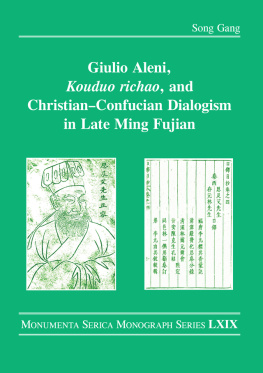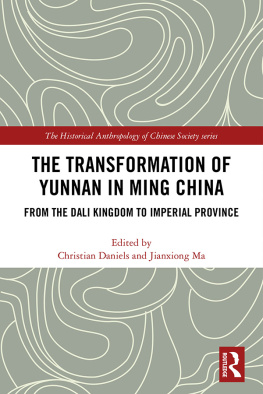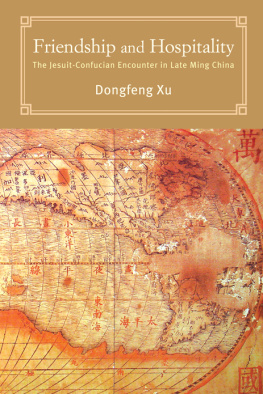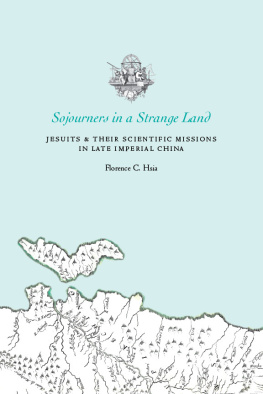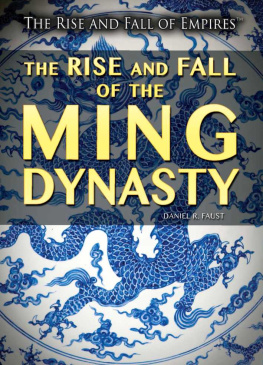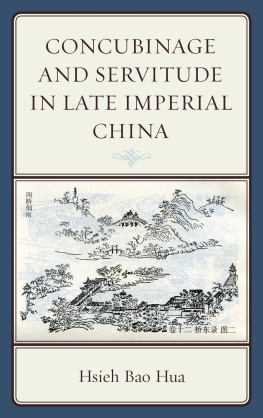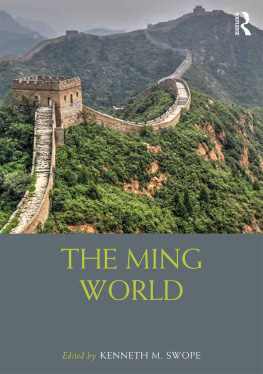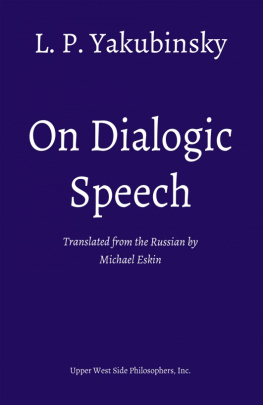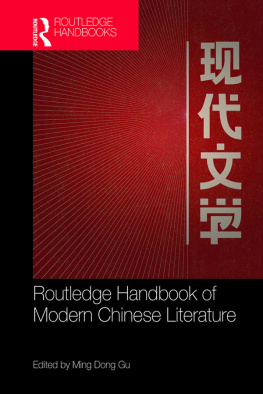Sumptibus Societatis Verbi Divini (S.V.D.)
Cover: left: Portrait of Giulio Aleni in Taixi Siji Ai xiansheng xingshu , Li Sixuan , after 1649, BNF Chinois 1017; right: page 255 of Kouduo richao , ARSI ed., vol. 7
Copy editors: BARBARA HOSTER, DIRK KUHLMANN, ZBIGNIEW WESOOWSKI
Cover and layout: JOZEF BITU
Arnold-Janssen-Str. 20
53757 Sankt Augustin, Germany
Fax: +49-2241-237486
E-mail: institut@monumenta-serica.de
www.monumenta-serica.de
First published 2019
by Routledge
2 Park Square, Milton Park, Abingdon, Oxon OX14 4RN
and by Routledge
52 Vanderbilt Avenue, New York, NY 10017
Routledge is an imprint of the Taylor & Francis Group, an informa business
2019 Monumenta Serica Institute
The right of Song Gang to be identified as author of this work has been asserted by him in accordance with sections 77 and 78 of the Copyright, Designs and Patents Act 1988.
All rights reserved. No part of this book may be reprinted or reproduced or utilised in any form or by any electronic, mechanical, or other means, now known or hereafter invented, including photocopying and recording, or in any information storage or retrieval system, without permission in writing from the publishers.
Trademark notice : Product or corporate names may be trademarks or registered trademarks, and are used only for identification and explanation without intent to infringe.
British Library Cataloguing-in-Publication Data
A catalogue record for this book is available from the British Library.
Library of Congress Cataloging-in-Publication Data
A catalog record for this book has been requested.
ISBN: 978-1-138-58912-4 (hbk)
ISBN: 978-0-429-49187-0 (ebk)
ISSN 0179-261X
Typeset by Monumenta Serica Institute
About twelve years ago, I became interested in the great encounter of China and the West in early modern history, and I decided to focus on the intellectual exchanges between the Jesuits and late Ming Confucians as the main theme of my Ph.D. dissertation. A popular Chinese saying states, It takes ten years to sharpen a sword, and so was my personal experience in carrying on this ten-year-long project. Despite many challenges and delays, I was able to make major revisions in the draft manuscript and put some of my recent research findings in the chapters. After accumulating a lot more evidence, knowledge, and insights on this subject, I am more convinced than ever that the key terms discussed in this book, such as dialogism and dialogic hybridization, are on the right track towards a broader vision for cross-cultural studies in the future. The book in its present form already offers a comprehensive, up-to-date study on Kouduo richao and dozens of Catholic dialogic works from early 17th-century China. While these examples will generate a better understanding of the two-way flow of words, beliefs, and experiences through Sino-Western exchanges during the late Ming, I believe the new paradigm proposed in this book can also contribute to methodological advances in future research on the entanglement of religiosity and secularity, individuality and collectivity, and orthodoxy and diversity in the midst of contacts between cultures.
I cannot help but remember my earlier studies at the University of Southern California, where I received abundant support from teachers and friends to set out on this exciting but mostly unaccompanied exploration. First and foremost, I would thank Dominic Cheung, my academic advisor, for having spared a tremendous amount of time to help me go through the writing of my dissertation. Without his meticulous guidance, it would have been impossible for me to finish the project on time and pass the oral defense with distinction. I am also indebted to John E. Wills Jr., Alvin Rudisill, and Bettine Birge, who provided insightful comments and suggestions for my research.
Towards the later stage of my doctoral research, I had the opportunity to participate in the 2005 Dissertation Workshop sponsored by the Association for Asian Studies. A dozen young scholars presented cutting-edge studies, from which I learned to enhance the interdisciplinary outlook of my own project. I also benefited from the critical comments from David Szanton, Laura Hostetler, and other senior scholars in this productive exchange.
In 2006 and 2008, the Ricci Institute for Chinese-Western Cultural History, University of San Francisco, offered financial support in my visits to its archival collection. Some key sources in this book come from these research trips. My special thanks go to Wu Xiaoxin, Antoni erler, and Mark S. Mir for their friendship and continued support of my early academic career. In fact, my first study of Alenis works and Jesuit print culture in Fujian drew inspiration from their initiative in organizing the 2010 international symposium on early missionary printing in Asia and the Americas.
In addition, the revision of this book was facilitated by the Hsu Long-sing Fund, which I received soon after I began to work at the University of Hong Kong in 2008. The Fund enabled me to visit several major Chinese Christian archives in Europe and Taiwan, where I could access and reproduce a number of important sources. I would like to express my gratitude to the Faculty of Arts for such timely support.
While working on this book in the past few years, I have benefited enormously from the exchanges with a number of scholars. Nicolas Standaert and Adrian Dudink are well-known experts in European Sinology. They not only provided abundant information on different kinds of primary sources and secondary studies (e.g., the online CCT Database), but they also offered detailed answers promptly to my questions. Eugenio Menegon inspired me with his expertise on Fujian Catholic communities in late imperial China. When I worked for the China on Paper Exhibition (2007) at the Getty Research Institute, Los Angeles, Marcia Reed and Paula Dematt gave me useful advice on scientific and artistic exchanges between late imperial China and early modern Europe. Roman Malek and Zbigniew Wesoowski, the former and current Editors-in-chief of the Monumenta Serica Institute, Sankt Augustin, likewise offered valuable comments on my research, and they showed great patience and professionalism in guiding me to get my first book published with their Institute. I am also thankful to my American colleague Nicholas M. Williams for his timely support in proofreading of the manuscript and clarification of the key concepts in my arguments.
A broad range of primary sources, both textual and visual, are used in this book. I therefore express my deep gratitude to the staff of Chinese or Asian collections in many libraries and institutes, including Kenneth Klein of East Asian Library, University of Southern California; Valentina Longo of Biblioteca Nazionale Centrale, Rome; Robert Danieluk of Archivum Romanum Societatis Iesu, Rome; Gianfranco Cretti of Centro Studi Giulio Aleni, Fondazione Civilt Bresciana, Brescia; Tatiana Pang of Institute of Oriental Manuscript, Russian Academy of Sciences, St. Petersburg; Nathalie Monnet of Bibliothque nationale de France, Paris; and Chien Fan-wen of Fu Ssu-nien Library at the Academia Sinica, Taipei. With their timely and professional assistance I was able to study numerous rare manuscripts and use them to strengthen the arguments in my revision.

